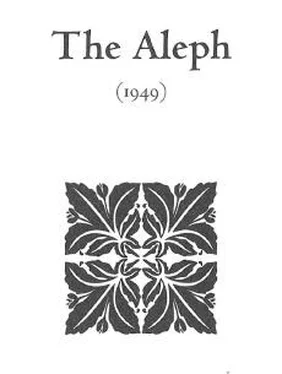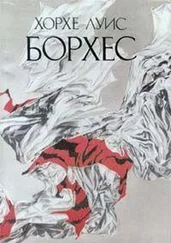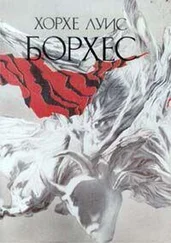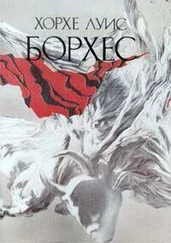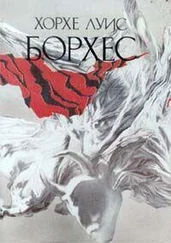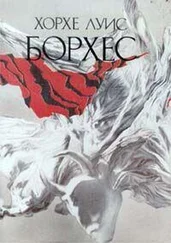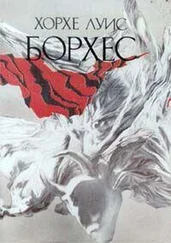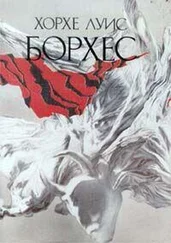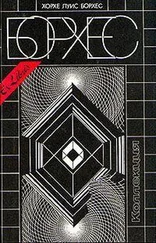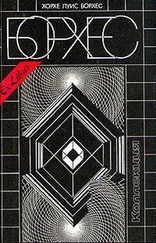Хорхе Борхес - Collected Fictions
Здесь есть возможность читать онлайн «Хорхе Борхес - Collected Fictions» весь текст электронной книги совершенно бесплатно (целиком полную версию без сокращений). В некоторых случаях можно слушать аудио, скачать через торрент в формате fb2 и присутствует краткое содержание. Год выпуска: 1999, ISBN: 1999, Издательство: Penguin (UK), Жанр: Старинная литература, на английском языке. Описание произведения, (предисловие) а так же отзывы посетителей доступны на портале библиотеки ЛибКат.
- Название:Collected Fictions
- Автор:
- Издательство:Penguin (UK)
- Жанр:
- Год:1999
- ISBN:9780140286809
- Рейтинг книги:5 / 5. Голосов: 1
-
Избранное:Добавить в избранное
- Отзывы:
-
Ваша оценка:
- 100
- 1
- 2
- 3
- 4
- 5
Collected Fictions: краткое содержание, описание и аннотация
Предлагаем к чтению аннотацию, описание, краткое содержание или предисловие (зависит от того, что написал сам автор книги «Collected Fictions»). Если вы не нашли необходимую информацию о книге — напишите в комментариях, мы постараемся отыскать её.
Collected Fictions — читать онлайн бесплатно полную книгу (весь текст) целиком
Ниже представлен текст книги, разбитый по страницам. Система сохранения места последней прочитанной страницы, позволяет с удобством читать онлайн бесплатно книгу «Collected Fictions», без необходимости каждый раз заново искать на чём Вы остановились. Поставьте закладку, и сможете в любой момент перейти на страницу, на которой закончили чтение.
Интервал:
Закладка:
Gradually, the man accustomed the youth to reality. Once he ordered him to set a flag on a distant mountaintop. The next day, the flag crackled on the summit. He attempted other, similar experiments—each more daring than the last. He saw with some bitterness that his son was ready— perhaps even impatient—to be born. That night he kissed him for the first time, then sent him off, through many leagues of impenetrable jungle, many leagues of swamp, to that other temple whose ruins bleached in the sun downstream. But first (so that the son would never know that he was a phantasm, so that he would believe himself to be a man like other men) the man infused in him a total lack of memory of his years of education.
The man's victory, and his peace, were dulled by the wearisome sameness of his days. In the twilight hours of dusk and dawn, he would prostrate himself before the stone figure, imagining perhaps that his unreal son performed identical rituals in other circular ruins, downstream. At night he did not dream, or dreamed the dreams that all men dream. His perceptions of the universe's sounds and shapes were somewhat pale: the absent son was nourished by those diminutions of his soul. His life's goal had been accomplished; the man lived on now in a sort of ecstasy. After a period of time (which some tellers of the story choose to compute in years, others in decades), two rowers woke the man at midnight. He could not see their faces, but they told him of a magical man in a temple in the North, a man who could walk on fire and not be burned.
The sorcerer suddenly remembered the god's words. He remembered that of all the creatures on the earth, Fire was the only one who knew that his son was a phantasm. That recollection, comforting at first, soon came to torment him. He feared that his son would meditate upon his unnatural privilege and somehow discover that he was a mere simulacrum. To be not a man, but the projection of another man's dream—what incomparable humiliation, what vertigo! Every parent feels concern for the children he has procreated (or allowed to be procreated) in happiness or in mere confusion; it was only natural that the sorcerer should fear for the future of the son he had conceived organ by organ, feature by feature, through a thousand and one secret nights.
The end of his meditations came suddenly, but it had been foretold by certain signs: first (after a long drought), a distant cloud, as light as a bird, upon a mountaintop; then, toward the South, the sky the pinkish color of a leopard's gums; then the clouds of smoke that rusted the iron of the nights; then, at last, the panicked flight of the animals—for that which had occurred hundreds of years ago was being repeated now. The ruins of the sanctuary of the god of Fire were destroyed by fire. In the birdless dawn, the sorcerer watched the concentric holocaust close in upon the walls. For a moment he thought of taking refuge in the water, but then he realized that death would be a crown upon his age and absolve him from his labors. He walked into the tatters of flame, but they did not bite his flesh—they caressed him, bathed him without heat and without combustion. With relief, with humiliation, with terror, he realized that he, too, was but appearance, that another man was dreaming him.
The Lottery in Babylon
Like all the men of Babylon, I have been proconsul; like all, I have been a slave. I have known omnipotence, ignominy, imprisonment. Look here— my right hand has no index finger. Look here—through this gash in my cape you can see on my stomach a crimson tattoo—it is the second letter, Beth. On nights when the moon is full, this symbol gives me power over men with the mark of Gimel, but it subjects me to those with the Aleph, who on nights when there is no moon owe obedience to those marked with the Gimel. In the half-light of dawn, in a cellar, standing before a black altar, I have slit the throats of sacred bulls. Once, for an entire lunar year, I was declared invisible—I would cry out and no one would heed my call, I would steal bread and not be beheaded. I have known that thing the Greeks knew not—uncertainty. In a chamber of brass, as I faced the strangler's silent scarf, hope did not abandon me; in the river of delights, panic has not failed me. Heraclides Ponticus reports, admiringly, that Pythagoras recalled having been Pyrrhus, and before that, Euphorbus, and before that, some other mortal; in order to recall similar vicissitudes, I have no need of death, nor even of imposture.
I owe that almost monstrous variety to an institution—the Lottery— which is unknown in other nations, or at work in them imperfectly or secretly. I have not delved into this institution's history. I know that sages cannot agree. About its mighty purposes I know as much as a man untutored in astrology might know about the moon. Mine is a dizzying country in which the Lottery is a major element of reality; until this day, I have thought as little about it as about the conduct of the indecipherable gods or of my heart. Now, far from Babylon and its beloved customs, I think with some bewilderment about the Lottery, and about the blasphemous conjectures that shrouded men whisper in the half-light of dawn or evening.
My father would tell how once, long ago—centuries? years?—the lottery in Babylon was a game played by commoners. He would tell (though whether this is true or not, I cannot say) how barbers would take a man's copper coins and give back rectangles made of bone or parchment and adorned with symbols. Then, in broad daylight, a drawing would be held; those smiled upon by fate would, with no further corroboration by chance, win coins minted of silver. The procedure, as you can see, was rudimentary.
Naturally, those so-called "lotteries" were a failure. They had no moral force whatsoever; they appealed not to all a man's faculties, but only to his hopefulness. Public indifference soon meant that the merchants who had founded these venal lotteries began to lose money. Someone tried something new: including among the list of lucky numbers a few unlucky draws. This innovation meant that those who bought those numbered rectangles now had a twofold chance: they might win a sum of money or they might be required to pay a fine—sometimes a considerable one. As one might expect, that small risk (for every thirty "good" numbers there was one ill-omened one) piqued the public's interest. Babylonians flocked to buy tickets. The man who bought none was considered a pusillanimous wretch, a man with no spirit of adventure. In time, this justified contempt found a second target: not just the man who didn't play, but also the man who lost and paid the fine. The Company (as it was now beginning to be known) had to protect the interest of the winners, who could not be paid their prizes unless the pot contained almost the entire amount of the fines. A lawsuit was filed against the losers: the judge sentenced them to pay the original fine, plus court costs, or spend a number of days in jail. In order to thwart the Company, they all chose jail. From that gauntlet thrown down by a few men sprang the Company's omnipotence—its ecclesiastical, metaphysical force.
Some time after this, the announcements of the numbers drawn began to leave out the lists of fines and simply print the days of prison assigned to each losing number. That shorthand, as it were, which went virtually unnoticed at the time, was of utmost importance: It was the first appearance of non-pecuniary elements in the lottery. And it met with great success—indeed, the Company was forced by its players to increase the number of unlucky draws.
As everyone knows, the people of Babylon are great admirers of logic, and even of symmetry. It was inconsistent that lucky numbers should payoff in round silver coins while unlucky ones were measured in days and nights of jail. Certain moralists argued that the possession of coins did not always bring about happiness, and that other forms of happiness were perhaps more direct.
Читать дальшеИнтервал:
Закладка:
Похожие книги на «Collected Fictions»
Представляем Вашему вниманию похожие книги на «Collected Fictions» списком для выбора. Мы отобрали схожую по названию и смыслу литературу в надежде предоставить читателям больше вариантов отыскать новые, интересные, ещё непрочитанные произведения.
Обсуждение, отзывы о книге «Collected Fictions» и просто собственные мнения читателей. Оставьте ваши комментарии, напишите, что Вы думаете о произведении, его смысле или главных героях. Укажите что конкретно понравилось, а что нет, и почему Вы так считаете.
